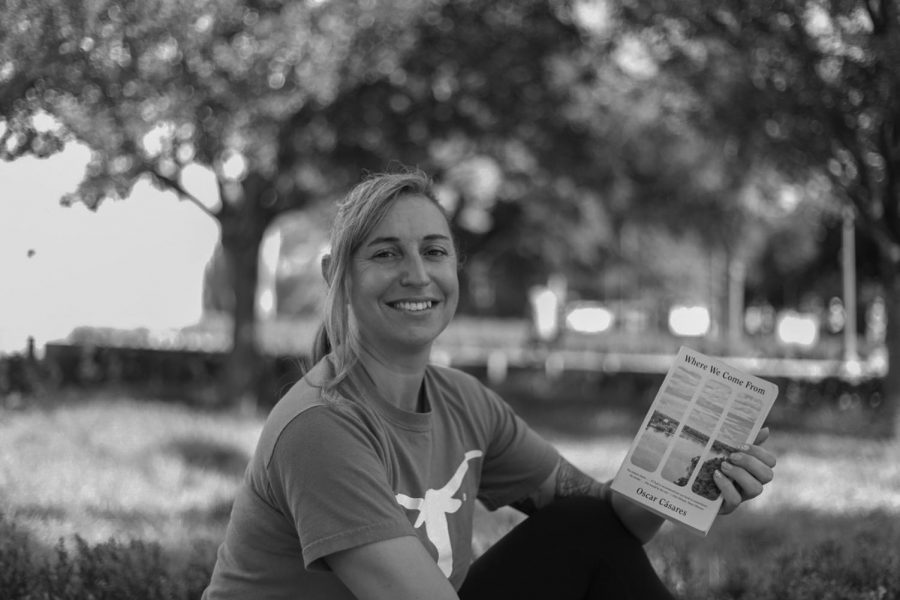Off the Shelf: Zoe Mantarakis
December 18, 2021
Editor’s Note: This article first appeared in the October 22 flipbook.
Zoe Mantarakis believes sharing stories builds bridges and serves as a gateway to inherent human connection.
Mantarakis, an assistant professor of practice in the Department of Kinesiology, first read “Where We Come From” alongside students in REACH, a freshmen book club she helps lead. Written by UT professor Oscar Cásares, “Where We Come From” resonates with Mantarakis through its poignant social commentary and message of shared humanity.
The Daily Texan: What is the book about?
Zoe Mantarakis: This is a book about border life. It talks about growing up in Brownsville and … people who are born and raised on the Texas side versus people born and raised on the Mexico side versus people who come across on a daily basis to work versus people who try to come across illegally and have to use what they call a “coyote” to shepherd them across the desert in the night. … Living in Texas, there’s something we can all relate to.
DT: Is there a line that stands out to you?
ZM: “She does something that she hasn’t done before. She touches him.” It’s talking about an (American) woman who’s been housing a refugee little boy who crossed the border illegally and has had to hide out for his own safety. She’s housed him for a long time, fed him, but she hasn’t touched him the whole book. … That was a big deal for me, to read (about) this acknowledgement of our humanity. The thing that can connect us (is) being touched — something as simple as holding someone’s hand, a pat on the back, a hug. I spent some time in India years ago and I felt very separate. There were many people affected by poverty and homelessness — issues that I felt were so big I couldn’t heal or fix it in one little trip. But it changed when I received a massage from this older lady, … I remember the moment, thinking you can’t just look at other people or look at poverty. It makes you feel like … you’re on one side, they’re on the other. But when you touch, that’s what brings people together again and we can all remember our humanity.
DT: What is the biggest takeaway in your life from this book?
ZM: Our story is worth telling. It’s always worth it to speak. There’s a lot of pain in the secrets that we keep about where we come from. … The other thing that it brought up for me (is) that feeling of food insecurity. That’s something that’s not spoken about a lot, the experience of not knowing where your next meal is coming from (and) relying on the goodwill of others. It’s an issue that touches many students on campus. We have to talk about it and it’s not a secret.
DT: Do you feel like you would be in a different place having not read this book?
ZM: Every time a story is told that … reveals an element of humanity or a secret that we thought we were the only one (who had), we realize, “I’m not the only one who’s been through that.” It breaks down barriers. It breaks down boundaries. We aren’t the same after having read it. It brings us together.












